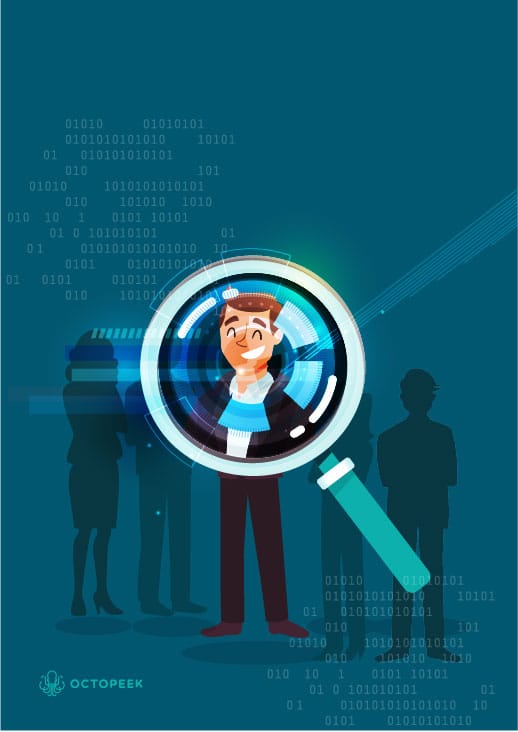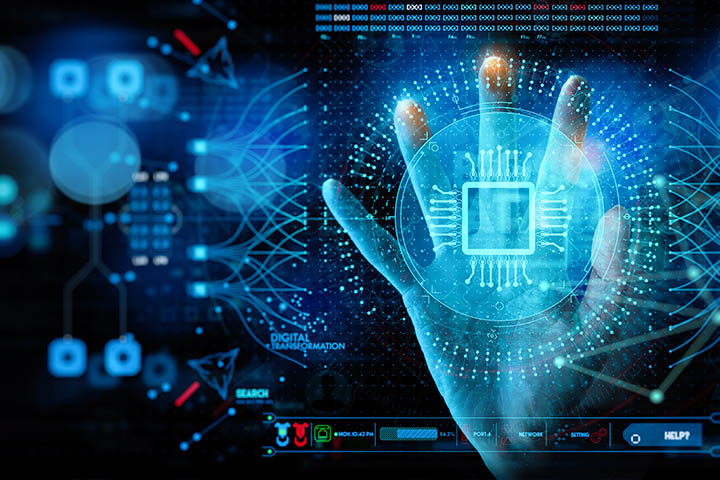How artificial intelligence is shaking up the world?
#BoostYourBusinessThe term “artificial intelligence” for the world of employment is worrisome and too often synonymous with mass destruction of jobs in the collective subconscious. This vision, however, is far from reality. In the recruitment world for example, 43% of professionals believe that AI will help improve their profession (Automation Nation Report – October 2017).
And this is not just a prediction: AI applications in recruitment already support decision-making and free up professionals from low value-added tasks. It will only improve as new technologies and techniques emerge.
AI applied to recruitment
AI in recruitment ads value at three levels.
Optimizing the recruitment processes. Artificial Intelligence helps recruiters identify potential candidates for a given position by performing a first “sorting” of the data. This is what the now retired Google Hire solution offered, which refines the search into a more focused list of interesting resumes. It looked at many parameters, such as qualifications, technical skills, specific keywords, travel time to the workplace, and more. These solutions also check the company’s resume databases to recall past applicants that may be relevant to a newly opened position.
Other tools make it possible to review resumes across the Web, such as “CV Catcher” used by Axa and SNCF. This is called “autonomous sourcing”: the AI sifts through candidates on different platforms (job boards, social networks) by comparing the information given by the candidates with the requirements of the open position. It is possible to define the desired criteria: level of training, skills, professional experience, mobility potential, even soft skills have their place.
Making recruitment more objective. Confirmation bias (the so-called “first impression”) is one of the cognitive biases that neither recruiters nor candidates can prevent. By drastically reducing human bias, artificial intelligence algorithms demonstrate absolute neutrality. Another benefit of these algorithms is AI can be organized to search for candidates through “affinity matching” which can help to determine how the personality of the candidate matches the culture of the company.
Strengthening interactions. A significant portion of the tasks undertaken by human resources are recurrent and low value: questions from candidates or employees about processes, access to in-house training, and the like. Using automated mailing or instant messaging solutions as one example, AI takes care of these recurring tasks to free up time for recruiters, who can focus on their relationships with candidates and employees.
Other applications are possible, such as AI as an aid to hiring. “Véra”, the virtual HR department adopted by Pepsi and Ikea, is able to conduct first level interviews and analyze the candidate’s speech (speaking speed, vocabulary used) before entrusting them to the care of a recruiter.
Artificial intelligence and recruitment: complement rather than replace

Artificial intelligence in recruitment does not make everyone happy. 62% of candidates think that AI risks dehumanizing the process (Robert Walters study – 2018). This fear is shared by 44% of recruiters. The vision of AI destroying human interaction remains significant.
As we have seen with these different application examples though, these fears are unfounded. Artificial intelligence does not attempt to cover all recruitment, but only certain recurring tasks that enhances human dimension of the process. Most importantly, direct contact with candidates retains its importance.
Beyond “matching” the personal data of candidates with the requirements of a position, the quality of the relationship, the impression given by individuals during interviews and the evaluation of soft skills retain all their significance. Candidates are much more than just data.
In this sense, AI in recruitment is not intended to replace recruiters, but to be complementary. Just as the calculator was never intended to take the place of the accountant.



